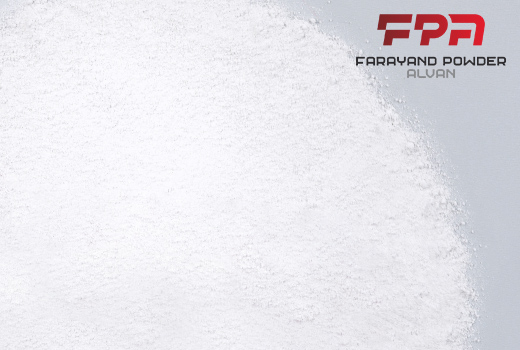Barite, scientifically known as barium sulfate, is a naturally occurring mineral. It is characterised by its high density and low solubility in water. The name "barite" is derived from the Greek word "baryts," which means "heavy." This mineral indeed lives up to its name, as it is one of the densest non-metallic minerals. This article will explore the barite world's origins, applications, and significance.
Barite formula
Understanding the barite formula is also very important for people who intend to use it or produce this material. Barite, also known as barium sulfate, is a naturally occurring mineral with the chemical formula BaSO4. It is a dense, white or colourless crystalline mineral that is highly insoluble in water and other common solvents. Barite is commonly found in sedimentary rocks and is often associated with other minerals, such as fluorite and calcite.
Physical Poperties of Barite
First and foremost, barite is notably heavy, with a specific gravity ranging from 4.2 to 4.5, making it one of the densest non-metallic minerals. This high density makes it an ideal weighting agent in drilling muds used in the oil and gas industry, where it helps control well pressure and stabilize boreholes.
Barite is usually colourless or white but can also be found in various shades of blue, brown, or grey. Its streak is white, and it has a vitreous to pearly lustre. This mineral typically occurs in tabular or prismatic crystal forms, with a Mohs hardness of 3 to 3.5, indicating its relative softness compared to many other minerals.
Barite exhibits a characteristic cleavage pattern, forming perfect cleavage in one direction, which is known as basal cleavage. It is also characterized by its high opacity, meaning it does not transmit light, and it is often used in the production of paints, coatings, and plastics as a filler due to its brightness and opacity.
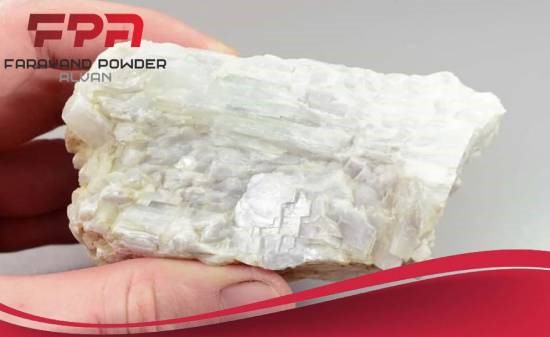
Barite Mining and Processing
Mining and processing of barite involve several key steps.
1. Exploration and Geology
The process begins with geological surveys to identify potential barite deposits. Barite is commonly found in sedimentary rocks, often associated with other minerals like fluorite and calcite. Geologists use various tools and techniques to locate viable deposits.
2. Mining
Once a deposit is identified, mining operations begin. Open-pit and underground mining methods are commonly employed, depending on the deposit's depth and size. In open-pit mining, large equipment is used to remove overburden, exposing the barite-bearing ore. This ore is then excavated and transported to processing facilities.
3. Crushing and Milling
At the processing plant, the extracted barite ore is crushed into small pieces to facilitate further processing. Milling equipment is used to grind the crushed ore into a fine powder, which is essential for various industrial applications.
4. Beneficiation
Barite often contains impurities, such as quartz, calcite, and iron sulfides, which need to be removed to meet industry standards. Beneficiation techniques involve gravity separation, magnetic separation, and flotation to concentrate the barite and remove unwanted minerals.
5. Quality Control
Quality control is crucial to ensure that the processed barite meets the required specifications for specific applications. This involves rigorous testing for particle size, chemical composition, and purity.
6. Packaging and Transportation
Once processed and tested, the barite is packaged in various forms, including bulk bags, 50-kilogram sacks, or even as a slurry. The packaged product is then ready for shipment to end-users, particularly in the oil and gas industry.
Barite benefits
One of its most significant benefits is its use in the oil and gas industry. Barite is a crucial component in drilling mud, where its high density helps control well pressure and stabilize the borehole. This prevents blowouts and other drilling hazards, making the extraction of oil and gas safer and more efficient.
Additionally, barite is used in the medical field for diagnostic imaging, such as X-rays and CT scans, where it serves as a contrast agent, enhancing the visibility of certain structures within the body. Its non-toxic nature and high opacity to X-rays make it an indispensable tool for medical professionals in diagnosing a range of conditions.
Another notable benefit of barite is its role in the production of heavy concrete used in construction. Due to its high density and ability to shield against radiation, barite is added to concrete formulations in nuclear power plants and hospitals for radiation shielding. This ensures the safety of workers and the surrounding environment by containing harmful radiation.
Barite's density also makes it useful in the manufacturing of counterweights, such as those used in aeroplanes, boats, and automotive parts, to help maintain balance and stability. Overall, the diverse range of applications for barite highlights its significance in multiple industries, from energy to healthcare and construction.
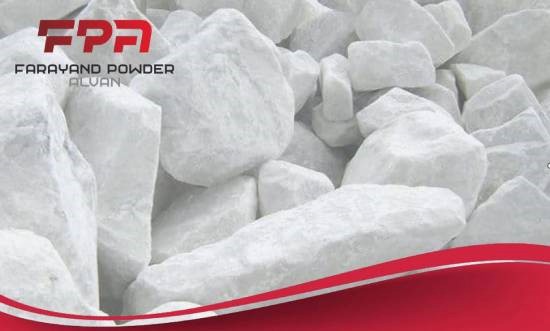
The important factors for buying barite
In this section, after getting to know and answering the question of what is barite and what is barite used for, we need to know that when buying this material, apart from paying attention to what is barite made of, other factors should be considered. considered For this reason, we examine these items in this section.
Quality and Purity
The quality of barite is paramount, especially in industries such as oil and gas drilling where it serves as a weighting agent. Ensure that the barite meets industry standards and specifications.
Purity levels are crucial; higher purity often translates to better performance in drilling fluids and other applications.
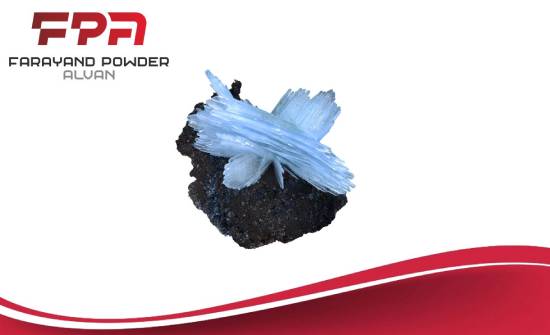
Particle Size and Distribution
Particle size plays a significant role in the performance of barite. Different industries may require specific particle size distributions. For instance, the oil and gas sector often demands fine particles for better suspension in drilling fluids.
Source and Origin
Barite is mined in various locations globally. The geological origin can impact the mineral's characteristics, including impurities and color. Buyers should be aware of the specific source to ensure it aligns with their application requirements.
Barite Grade
Barite comes in various grades, each catering to specific applications. Common grades include industrial, drilling, and pharmaceutical. Select the grade that aligns with the intended use to optimize performance.
Quantity and Packaging
Determine the required quantity of barite based on your project or manufacturing needs. Consider bulk purchasing for cost-effectiveness.
Packaging is crucial for transportation and storage. Ensure that the chosen packaging complies with safety and industry standards.
Price and Cost Analysis
Obtain quotes from multiple suppliers to compare prices. However, it's essential to consider other factors like shipping costs, delivery time, and quality assurances.
Conduct a thorough cost analysis that includes all associated expenses to make an informed decision based on overall value.
Supplier Reputation and Reliability
Choose suppliers with a solid reputation for delivering quality barite consistently. Check references, testimonials, and industry certifications.
Evaluate the supplier's reliability in terms of meeting deadlines, providing consistent product quality, and responding promptly to queries or issues.
Regulatory Compliance
Ensure that the purchased barite complies with local and international regulations. This includes environmental standards, safety regulations, and any specific industry requirements.
Testing and Certification
Request product samples for testing to verify the claimed specifications. Suppliers should be willing to provide certification documents indicating compliance with industry standards.
Logistics and Transportation
Consider the logistics of transporting barite from the supplier to your location. Evaluate shipping methods, lead times, and potential challenges to ensure a smooth and timely delivery process.
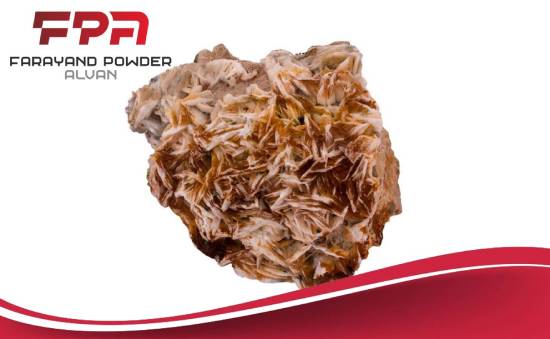
Uses of barite
Its most significant barite powder uses in the oil and gas sector, where it is employed as a weighting agent in drilling fluids to control well pressure and prevent blowouts during drilling operations. In the medical field, barium sulfate is used as a contrast agent in X-ray imaging to enhance the visibility of internal structures in the human body.
Barite also has applications in the manufacturing of paints, plastics, and rubber to improve their density, as well as in the production of ceramics and glass, where it acts as a flux to reduce melting temperatures and increase brightness. Its radiation shielding properties make it valuable in nuclear facilities, and it is used in the production of brake linings for heavy vehicles due to its high-density characteristics. Additionally, barite is used in various industries, such as paper, textiles, and electronics, showcasing its versatility and industrial significance.
Barite side effects
Barite, a mineral primarily composed of barium sulfate, is generally considered non-toxic to humans. However, the side effects of barite exposure can occur when it is inhaled as fine dust particles. Prolonged or heavy inhalation of barite dust can potentially lead to respiratory irritation, coughing, and shortness of breath.
Additionally, there may be concerns related to the impurities present in barite, such as silica or heavy metals, which could have adverse health effects when inhaled. As with any substance, it's important to take precautions when working with barite to minimize dust exposure and to follow safety guidelines to prevent potential side effects.
With more than three decades of expertise, Farayand Powder Alvan Co. excels in the production of a wide range of industrial micronized powders. Their highly skilled team, specializing in pigments, has solidified their reputation as a respected supplier across multiple industries. They take immense pride in offering customers expert technical assistance, guaranteeing the acquisition of top-notch and budget-friendly solutions.

